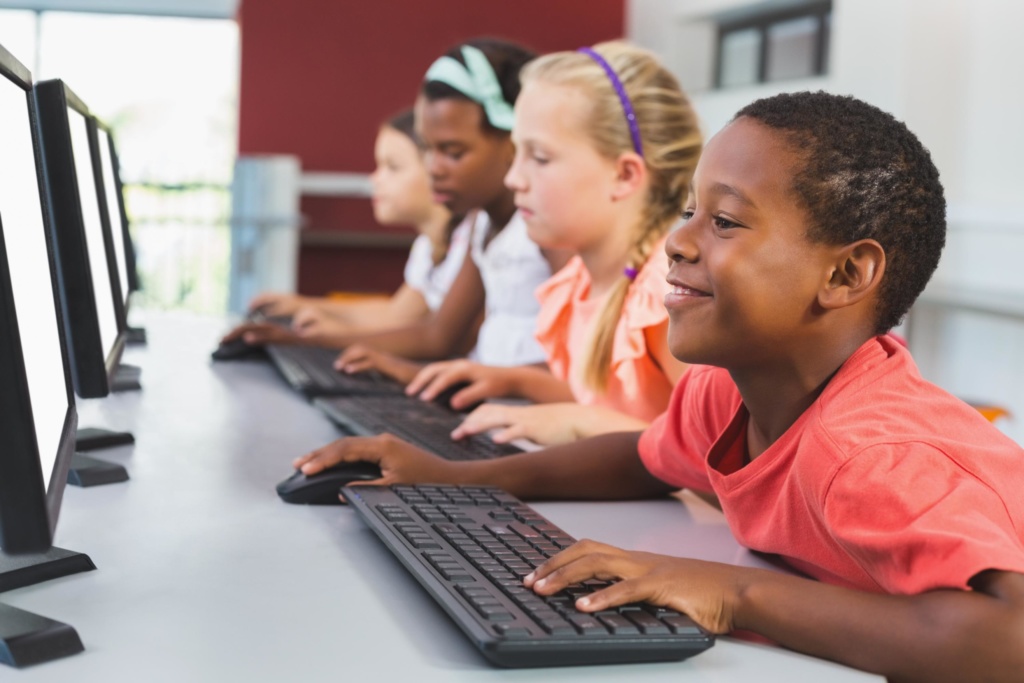
Safer Internet Day
It is very challenging to teach in two very different learning spaces simultaneously, especially during a pandemic. As well as making sure that children maintain as much momentum in their learning as possible both at home, via online learning, and in the classroom, we also have to be really attuned to any situations that might compromise the safety of children.
The safety of online learning has been a priority across our trust, which is made up of seven primary schools in Warrington and Widnes, as well as the schools that we support outside our trust.
Because many of these children aren’t in school we have had to develop new protocols to ensure that they engage consistently with their learning and that we check on them if they fail to respond. Ultimately, if a child fails to attend a live online lesson or submit some work then we will send our safeguarding team out to check on them. We need to know that the child is OK and hear that from the child themselves.
System choice and safety
One of the biggest concerns we had at the start of the pandemic back in late February 2020 was the technical security of online learning platforms. From the leadership point of view we wanted the platform to be a sound system for learning and one that was also safe. We were concerned about ‘Zoom bombing’ incidents that we had read about in the media in which calls were interrupted by uninvited and often verbally abusive guests and we wanted to avoid any situations like that from happening.
We explored a number of technology solutions and on the recommendation of our IT team we went with Microsoft Teams because this would provide us with the most secure platform for the switch into online learning that we knew was on its way. We did all this a few weeks before the first lockdown and the government’s announcement that Teams and Google would be their two preferred platforms for remote learning.
The fact that Teams allowed us to put in place controls and checks on the children’s use of the technology reassured staff. For example, the system allowed us to check what was happening within each child’s account so that we could make sure that each child was following a simple set of rules.
Internet safety checklist
Bruche Primary School, which is one of seven primary schools in Warrington Primary Academy Trust, has developed an internet safety checklist for pupils.
Teachers cover this at the start of each school day with pupils. It includes the following rules:
- I will think carefully before I post anything
- I will always listen to my teachers and teaching assistants
- I will try as hard as I can to complete all the work set for me
- When I’m asked to mute my microphone I will do it straight away
- I will never give out my details, even to my friends such as
- home address
- phone number
- pictures
- I will communicate with others in a respectful way
- I will not use the chat function with other children or adults in school unless my teacher asks or allows me to
- I will seek permission before sharing pictures or information about other people online
- I will tell a trusted adult like my teacher, teaching assistant or parents if I see something that makes me feel uncomfortable
The next hurdle was to make sure that our staff were confident using the technology. Teams is an amazing platform, but staff felt very unsure at first about communications with the children. There were concerns that they might be vulnerable to allegations by parents or children of saying something that they hadn’t actually said.
As part of our protocols we insisted that every live lesson, catch-up tuition session and live interaction over Teams should be recorded so that if there were any allegations these could be checked. We also stressed the importance of children accessing their live lessons wherever possible from a part of their home where it was easy for a parent to clearly see their screen and supervise them if necessary, such as the kitchen or lounge.
The parent factor
We also had some concerns about parent behaviour. Our parents are great on the whole but there was always a risk that someone would not adapt their home behaviour to a situation in which the classroom was brought into their homes through remote learning. Unfortunately, some parents do not realise that the swearing and aggressive shouting that is part of their everyday language should be regulated when children are learning online at home. We understand that some of our families are under extreme pressure as a result of economic anxieties created by the pandemic, but this behaviour can present a problem during a live lesson if the children can hear it.
We did have some problems early on, but this is less of an issue now as our teachers quickly got used to managing these thankfully rare situations. The mute button is very useful in these circumstances and we also follow up with a conversation with those parents to try and avoid such a situation happening again. If it continues to be a problem then we have to threaten sanctions, such as moving to pen and paper-based learning.
Some staff were also worried about parents listening to them teaching and judging them. A few parents have very strong views about the teaching of LGBT issues as part of our PSHE curriculum, for example. This is a nationally sanctioned, highly reputable curriculum but some parents have problems with it. We also have issues where parents listen in and engage in the learning which could be intimidating for staff.
We discuss the management of these situations as a MAT, inviting all of our colleagues to share their experiences and approaches that have worked. In most cases these issues can be solved through a quiet conversation with the parents.
Some parents did not enjoy schools themselves and this can colour their perceptions of the work you and your staff do. What we know is a good lesson might be perceived by them as a bad one.
We want all of our parents to appreciate the difficulty of what we are doing. You may have a situation where you have a teacher with a class made up of 15 children learning remotely and 15 in the classroom. It’s a stressful situation. Some people don’t realise that our schools have remained open for business during this lockdown and we have many more children here than we did during the spring and summer lockdown. But staff are still being judged by the same standards applied to the classroom.
On reflection, many of the safety issues that we have encountered over the past year in relation to our online learning are relatively low level and thankfully we have not had to tackle safeguarding issues of the seriousness experienced by some other schools. We like to think that our protocols, vigilance and choice of technology – along with the support of staff and parents – has helped us to manage any safety concerns associated with online learning up to now. We know that we’re not out of the woods yet and there is still likely to be several months more of uncertainty and we will have to continue online learning at some level. Whatever happens, we have amassed a lot of experience in making sure that online learning is as safe as possible for our children – and that must surely put us in a strong position for the future.

Louise Smith is CEO of Warrington Primary Academy Trust (WPAT), which is made up of seven primary schools in Warrington and Widnes, Cheshire. WPAT’s guiding principle is to deliver a first-class education through partnership, innovation, school improvement and accountability. It has developed a national reputation for excellent standards. wpat.warrington.sch.uk
Register for free
No Credit Card required
- Register for free
- Free TeachingTimes Report every month